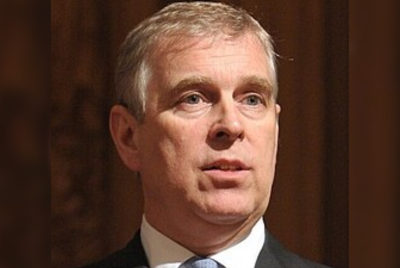Rachel Reeves Aims to Remove Two-Child Cap — Is It Fair to UK Taxpayers or a Lifeline for Large Asylum Families?
The reform could cost around £3 billion annually, prompting debate over fairness and taxpayer burden

Chancellor Rachel Reeves has signalled plans to remove the two-child benefit cap in what would mark one of the most significant reversals of welfare policy since the austerity era.
She said the limit unfairly penalises children in larger families and contradicts Labour's pledge to tackle child poverty. The move has drawn support from anti-poverty campaigners and thinktanks who say it would make the welfare system fairer and lift hundreds of thousands of children out of hardship. The Resolution Foundation estimates that scrapping the rule could take between 330,000 and 500,000 children out of poverty by the end of the decade.
The proposal carries an estimated £3 billion annual cost (approximately $3.9 billion), putting pressure on Reeves to balance social ambition with fiscal restraint. Debate has widened beyond party lines, focusing on whether the reform represents fairness to families or an expensive promise at a time of tight public finances.
What the Two-Child Cap Means
The cap prevents parents from claiming the child element of Universal Credit or similar tax credits for a third or later child born after April 2017. Ministers introduced it to encourage financial responsibility and to ensure that benefit recipients faced the same budgeting choices as those in work.
Charities have long opposed the limit, calling it one of the harshest welfare restrictions in a generation. They argue that it hits single parents, working households with several children and many families from minority ethnic backgrounds. Reeves told BBC 5 Live that no child should be penalised for being part of a bigger family and that hardship should not result from circumstances such as illness, bereavement or adoption.
Fiscal Pressure and Taxpayer Concerns
Critics, including several Conservative MPs, say ending the cap would unfairly burden taxpayers and risk weakening work incentives. With borrowing still high, the Treasury faces scrutiny over how it would fund another multi-billion-pound commitment. Some economists suggest a tapered benefit system, reducing support gradually for each additional child, could be a more affordable compromise, The Guardian reported.
Supporters view the reform as both moral and pragmatic, arguing that it would modernise welfare policy and reflect the cost-of-living reality faced by many families. Opponents counter that it could send the wrong signal about personal responsibility and fairness to working households who budget carefully.
Scraping the 2child limit is unacceptable to those of us that only had two children because it’s all we could afford.Some people can’t afford to have children yet would be asked to contribute to others who have them regardless and expect the ‘state’ to step in.Limit should stay https://t.co/JqVaJ5BDFd
— Susan Hall AM (@Councillorsuzie) November 10, 2025
Let’s be clear what scrapping the two child benefit cap would mean.
— Simon Clarke (@SirSimonClarke) November 10, 2025
Families earning their own way (with higher taxes coming) have to budget for how many children they have, making difficult choices.
Families relying on the state would get to have as many children as they want. https://t.co/5IMnaCiZFy
Incredible. One Year ago Keir Starmer suspended 7 Labour MPs who voted to scrap the Two-Child benefit cap. The cap was bad then and is bad now. What's changed? https://t.co/oHRtVxHPAr pic.twitter.com/9YjY5vesdc
— Cllr Martin Abrams 🕊️🍉 (@Martin_Abrams) November 10, 2025
Families impacted miss out on around £3500 PER YEAR. This is enough to push them into poverty, but claiming that people will then have lots of kids is just wrong. The majority of families impacted by this policy are in working households. This policy pushes families into poverty.
— End Child Poverty (@EndChildPoverty) November 10, 2025
Don’t do it!!!! Just look at the US welfare system if you want an example of a failed welfare program with no limits!!!
— Kelly (@Blondie9780) November 11, 2025
How many BILLIONS does the UK have to spare? pic.twitter.com/N7Dw4Q9hNY
Reaction and Political Implications
The plan has ignited sharp public debate. Some Conservative figures, including Sir Simon Clarke and London Assembly member Susan Hall, argue that taxpayers should not be asked to fund larger families, including those of asylum seekers or migrants, when many UK workers already struggle to make ends meet.
Supporters respond that the cap has deepened child poverty among both British and migrant households and that removing it would show a national commitment to equality and inclusion. Welfare analysts note that asylum families often receive limited support while waiting for decisions on their status, and that lifting the limit would mainly help low-income working families already within the UK benefits system.
Whether the reform becomes a landmark in social policy or a costly political gamble will depend on how the Treasury manages funding and fairness. For Reeves, success will rest on proving that protecting children and maintaining fiscal credibility can coexist in a single welfare strategy.
© Copyright IBTimes 2025. All rights reserved.





















